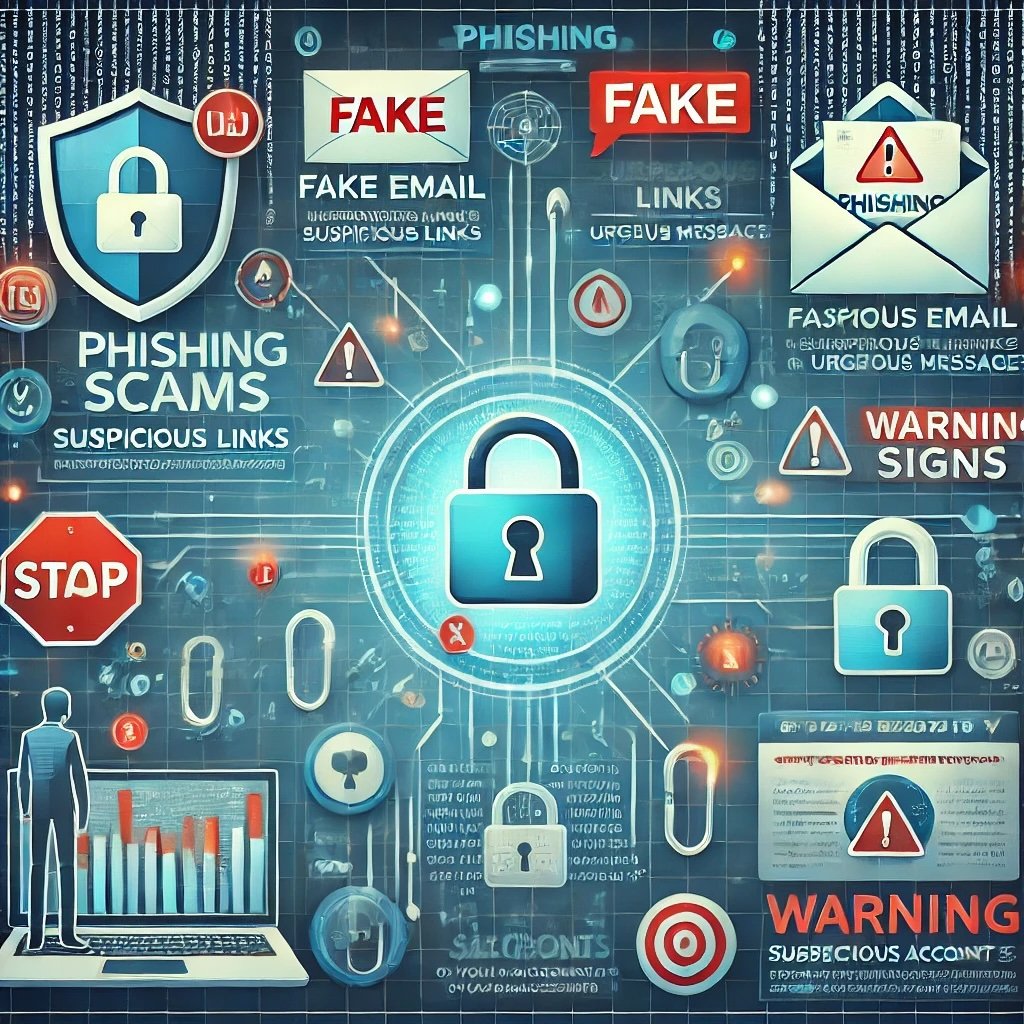PHISHING SCAMS UNVEILED — How to Protect Yourself and What to Do if You Fall Victim
Phishing scame exploit human trust and technological vulnerabilities to steal sensitive personal information, often leaving victims financially and emotionally devastated.
Whether it’s through emails, text messages, phone calls, or even social media platforms, scammers are constantly innovating their methods. At R23 Law Consumer Protection Attorneys, we understand the challenges victims of phishing scams face and are here to provide legal expertise and guidance to help protect your rights and recover from such incidents. This comprehensive guide explores what phishing scams are, how to spot them, and what steps you can take to safeguard your information.
Understanding Phishing Scams: The Basics
Phishing scams are fraudulent attempts to steal personal information—such as Social Security numbers, bank details, passwords, or credit card information—by pretending to be trustworthy entities. Scammers often masquerade as banks, government agencies, delivery services, or popular companies, sending messages that appear urgent or authentic.
How Do Phishing Scams Work?
Phishing scams typically follow these steps:
Impersonation: The scammer pretends to be a legitimate organization, often using company logos, official-looking email addresses, and professional language.
Urgency: The message conveys an urgent need for action, such as verifying your account, confirming payment details, or addressing a supposed security breach.
Baiting the Victim: Victims are directed to fake websites or prompted to reply with sensitive information.
Data Harvesting: Once the victim enters their information or clicks on malicious links, the scammer captures it for fraudulent use.
The Different Types of Phishing Scams
Phishing scams aren’t limited to email. They manifest in various forms, including:
Smishing (SMS Phishing): Scammers send fraudulent text messages that contain links to malicious websites or ask for personal details.
Vishing (Voice Phishing): Phone calls from scammers impersonating customer service agents or government officials, pressuring victims to share confidential information.
Social Media Scams: Fraudsters create fake profiles or ads to steal personal information or money from unsuspecting users.
Spear Phishing: A more targeted approach where scammers use personalized information (such as your name or job title) to appear credible.
Why Are Phishing Scams So Dangerous?
Falling victim to a phishing scam can lead to severe consequences:
Identity Theft: Scammers can open fraudulent accounts, make unauthorized purchases, or commit crimes in your name.
Financial Loss: Bank accounts can be drained, or fraudulent loans and charges may be incurred.
Credit Damage: Fraudulent activity can harm your credit score, affecting your ability to secure loans, housing, or employment.
Emotional Stress: Victims often feel violated, vulnerable, and overwhelmed by the recovery process.
How to Spot a Phishing Scam
While phishing scams have become increasingly sophisticated, there are common red flags to watch for:
Generic Greetings: Legitimate organizations often address you by name, not as “Dear Customer.”
Spelling and Grammar Errors: Many phishing emails contain typos or awkward phrasing.
Urgent Language: Messages demanding immediate action, such as “Your account will be suspended,” are designed to provoke panic.
Suspicious Links: Hover over links to see where they lead—phishing URLs often mimic legitimate ones but with slight misspellings or added characters.
Requests for Sensitive Information: Legitimate companies rarely ask for personal details via email or text.
Steps to Protect Yourself from Phishing Scams
Prevention is your best defense against phishing scams. Follow these tips to protect yourself:
Verify Communications: Contact the organization directly using official contact details, not those provided in the suspicious message.
Be Skeptical of Links and Attachments: Avoid clicking on links or downloading attachments unless you’re certain of their legitimacy.
Enable Two-Factor Authentication (2FA): Add an extra layer of security to your online accounts.
Update Your Software: Keep your devices and security software up-to-date to protect against vulnerabilities.
Educate Yourself and Others: Share knowledge about phishing scams with friends and family to reduce their risk of falling victim.
What to Do If You’re a Victim of Phishing
If you suspect you’ve fallen victim to a phishing scam, it’s crucial to act quickly to minimize the damage. Here’s what to do:
Secure Your Accounts: Change your passwords immediately, prioritizing email, banking, and social media accounts.
Contact Your Bank: Report the fraud to your financial institutions and request a freeze on your accounts if necessary.
File a Fraud Alert: Notify credit bureaus (Equifax, Experian, and TransUnion) to add a fraud alert to your credit report.
Report the Scam: File complaints with the Federal Trade Commission (FTC) and forward phishing emails to phishing-report@us-cert.gov.
Consult a Lawyer: Legal action may be necessary to recover your losses or clear your name. R23 Law Consumer Protection Attorneys specializes in helping victims of phishing scams navigate this complex process.
California’s Legal Protections for Phishing Victims
California provides robust legal protections for victims of phishing scams:
California Identity Theft Act: This law allows victims to recover damages and clear fraudulent credit entries.
California Consumer Privacy Act (CCPA): Ensures stricter privacy standards to reduce the risk of cybercrime.
Fair Credit Reporting Act (FCRA): Grants consumers the right to dispute inaccuracies on credit reports and hold reporting agencies accountable.
R23 Law leverages these laws to advocate for victims and secure justice on their behalf.
Take Action Today
Phishing scams are a serious threat, but with the right knowledge and legal support, you can protect yourself and recover from their effects. If you’ve been a victim, don’t wait—CONTACT R23 Law for a free consultation. Our experienced California consumer protection attorneys are ready to help you regain control of your financial future.

